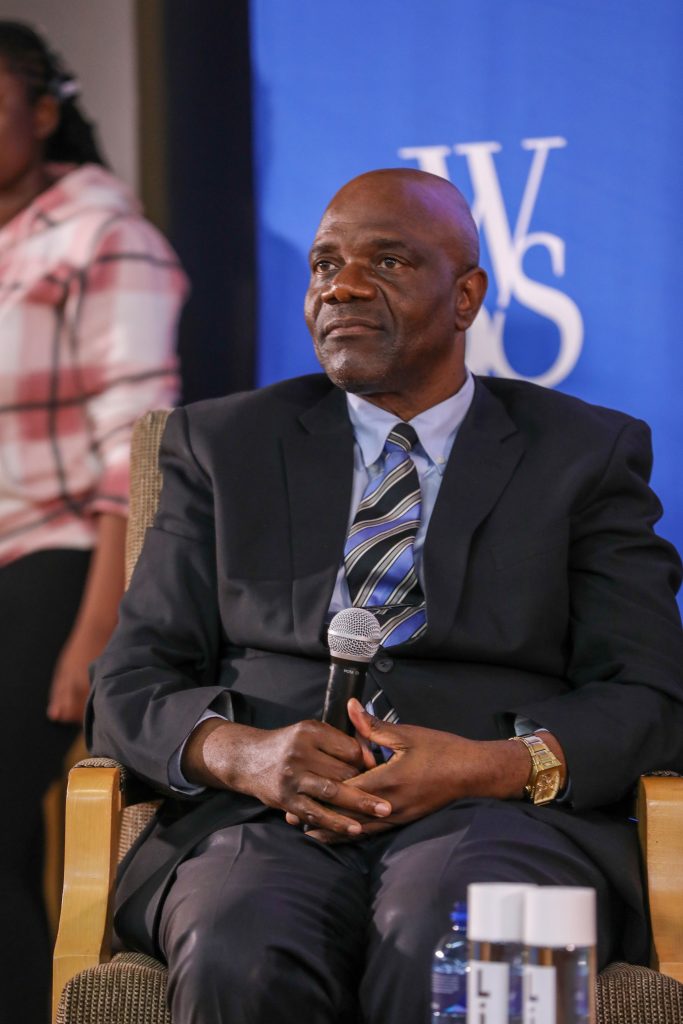At the end of 2022, the Centre of African Philanthropy and Social Investment (CAPSI) reflected on numerous conversations centered on the work and impact of women across the philanthropic sector. To gain insights, build resources, and foster a progressive community, the Centre launched what would initially be known as the Women in African Philanthropy Initiative, which concept was incubated as part of the City University of New York’s Emerging Leaders fellowship. The initiative aimed to engage with and build a body of knowledge from the experiences and observations of women who are active across multiple roles and demographics in the philanthropic sector, and foster a shared agenda that is co-created, researched, and implemented with the support of the Centre.
About the Initiative
The word philanthropy stirs mixed opinions amongst people on the continent, primarily due to the association and descriptions of the word being narrow, and the implementation being within the framework of western corporate structures. The Initiative is birthed at a time when more traditional mechanisms such as Susu, Stokvels, Giving Circles, and Harambees are regaining awareness in mainstream dialogues. When considering the connotations that come with these words, often a mental picture of women is painted: women giving of their owned natural resources, time, skills, and financial resources.
Led by Programme Manager Thandi Makhubele, CAPSI has committed to allocating resources towards research, platform development, and content development to fulfill its objective of finding new and contextual narratives of philanthropy, shaped by the voices, lessons, and experiences of African women.
Launching the Initiative
The initiative formally began in March of 2023, with a call for women active in the sector across the continent to share reflection messages, which would serve as the initial body of knowledge in framing research. The initiative launched a networking practice through a WhatsApp group, which has welcomed 55 members joining as early adopters.
An official launch event was hosted on 29 May in a hybrid format, attended by 60 women with MC Nesisa Moyo. In her opening address, Thandi provided background on the initiative, the objectives behind its vision, and mapped the channels that would be tapped into, these being research, publications, podcast conversations, and networking platforms. “One of my hopes is that this initiative fosters a network that is inclusive of women from grassroots levels to high-net-worth philanthropists across the continent. This will help us gather rounded insights that can inform development and foster relationships that are authentic,” says Thandi.
Keynote Presentation
Patience Zowa of the Brave Girl Initiative in Eswatini was the keynote speaker of the launch event and generously shared her experience as a coordinator of a community-based organisation whose mandate reaches predominantly rural communities and whose work influences self-awareness and consciousness of young girls who live under circumstances that often compromise their physical and sexual well-being. Through the sharing of stories, Patience detailed the various interventions that the Brave Girl Initiative team has undertaken with community leaders, schools, and parents, which have been supported primarily through the generosity of volunteerism and donations from community members.
“And we are working to ensure that no girl in rural Eswatini grows up saying, ‘I wish somebody would have told me this about my health’ or ‘I wish somebody told me that about my well-being.’ Many girls wonder where they can go to receive the resources to be able to make the proper decisions. Brave Girl Initiative exists so that girls in the rural areas can know and be reminded that they too can dream,” says Patience.
Panel and Audience Discussion
The launch hosted a panel discussion moderated by CAPSI Research Associate Halima Mahomed, with panelists Bongi Mkhabela of the Barloworld Foundation, Mamo Mohapi of the Mott Foundation, and Colleen Lowe-Maura of GenderLinks. This was a space for interaction as both in-person and online attendees raised, reflected, and resolved several issues relevant to the topic of Women in African Philanthropy. As the panel began, it felt like a moment of opportunity to redefine and progress to a new narrative, with Colleen remarking, “Let us throw a few stones and shatter the current so we can rewrite the narrative.“
“If the word philanthropy is what we want to build for the next 100 years, then we are okay. However, if we think that there may be values that need to be built into it, then there might need transformation needed. The word itself might need transformation,” says Sibongile.
“This is seen as a very white-male-dominated space, but fortunately, that is changing fast. As I trawl through the literature, it seems to me that there are three strands that we could be thinking about as African women in philanthropy: high-net-worth individuals, the care work (economy) that women do all the time, and professional, established women in the sector who have already established a strong reputation for themselves,” says Colleen.
“I feel a sense of impostor syndrome when I engage in philanthropy because I am essentially a professional who is part of a community that is often on the opposite side of the narrative about what is good about philanthropy. I don’t see myself as a philanthropist but rather as a facilitator of resources who can contribute to making sure that people like Patience can continue to do their amazing work,” says Mamo.
The responses heard during the Q&A of the panel indicated there was resonance with much of what had been shared, with the added benefit of varying dimensions, such as the question of capitalism, strategies on how to navigate institutional power in favour of community need, the challenges that are embedded when acts of giving, which are true to the nature of women, lie within a term that is unrelatable; and how the networking ability of women is a deeply impactful resource.
The question of why existing giving practices, such as using remittances to send money to family by Africans in the diaspora, are not included when quantifying philanthropic giving, how redefining what we know as philanthropy by women is a political act of reclaiming existence, and how there are many women who offer a mine of wisdom and insights that can serve as a foundation for the work of the initiative.
In an appropriate closing of the conversation, a quote from a recent article that was published by the Global Fund for Community Foundations, “You don’t need to call yourself a philanthropist, call yourself a sister, a brother, or just somebody who cares.”
While this initiative began under the name of Women in African Philanthropy, the launch has helped the Centre to deeply relate to the moment that is at hand. A vital first step on the road ahead is collaborating with women across the continent to define a narrative of philanthropy in the context and voices of African women.
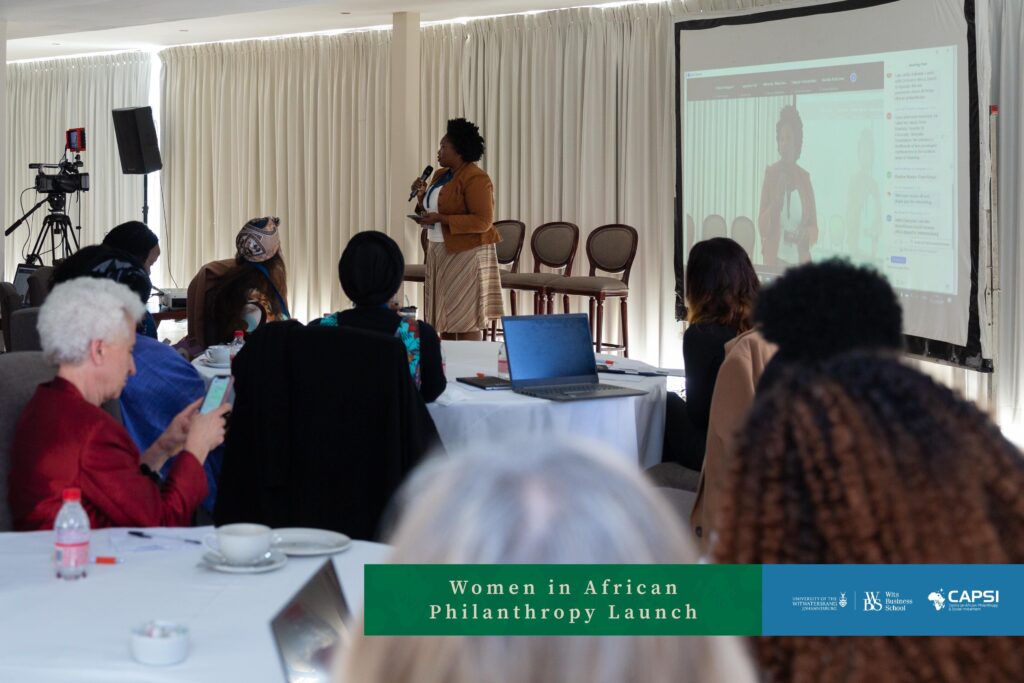
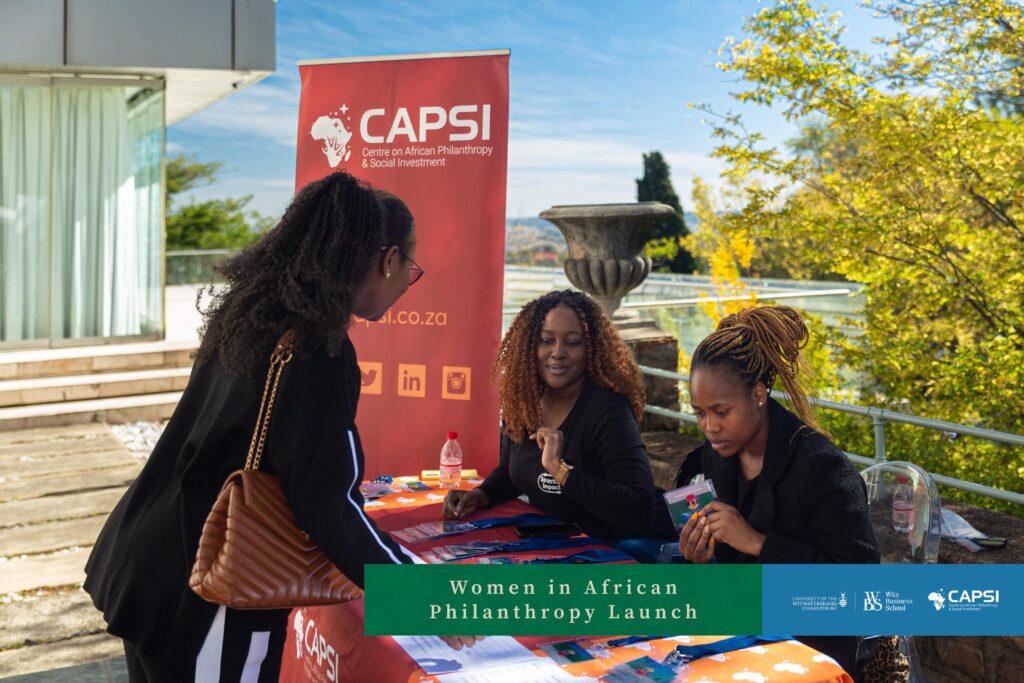
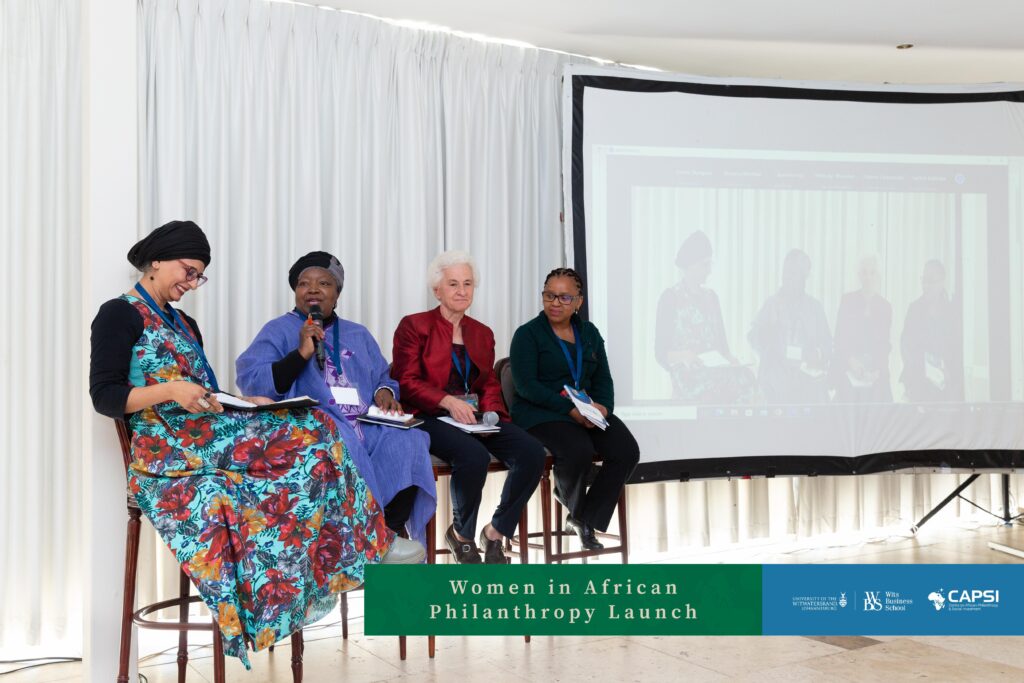
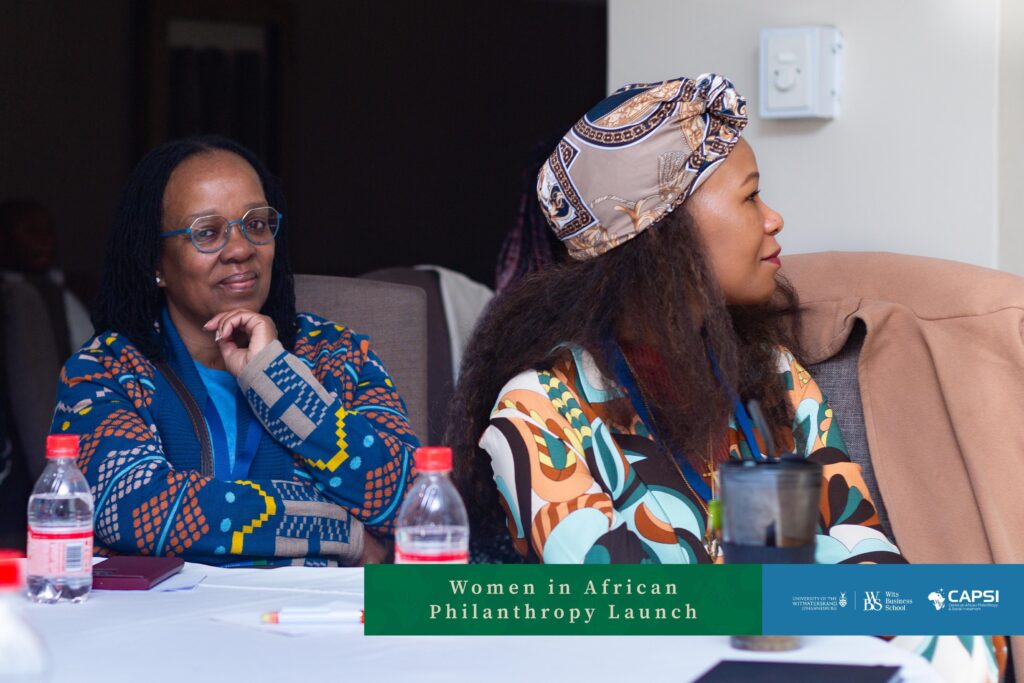
Looking ahead
Director of the Centre, Bhekinkosi Moyo, concluded by saying, “We will be taking these recommendations and working with all of you to build an inclusive initiative that benefits women from across the continent.“
Next steps
The Women in African Philanthropy Initiative has made remarkable strides during our launch event, and now it’s time to look ahead and plan for the next steps in our journey. Here are the key actions we will be taking:
Reframing the concept and meaning of Philanthropy: We reaffirm the need to broaden the meaning of philanthropy to align with the diverse giving practices and cultural contexts of Africa. We will engage in thoughtful discussions and consultations to ensure that our understanding of philanthropy is inclusive, encompassing various forms of giving, including time, skills, resources, and community involvement.
Renaming to Fit the African Giving Context: Building upon the redefined concept of philanthropy, we will consider renaming our initiative to better reflect and resonate with the African giving landscape. This process will involve academic and non-academic research, and consultation with stakeholders, experts, and community members to ensure that the new name encapsulates the essence of our work and values.
Selection of a Committee: To drive the Initiative forward, we will establish a dedicated committee comprising passionate individuals with diverse expertise and experiences in philanthropy, women’s empowerment, and community development. This committee will play a crucial role in providing strategic guidance, shaping the direction of our initiatives, and facilitating collaboration with relevant stakeholders.
Next Convening: We recognise the importance of regular gatherings and convenings to foster connections, share knowledge, and inspire collective action. The selection of the next convening will be a collaborative process involving the committee and key stakeholders. We will work diligently to create an inclusive and engaging event that facilitates meaningful dialogue, highlights best practices, and explores innovative approaches to women’s philanthropy on the continent.
These next steps signify our commitment to continuously evolving and adapting to better serve the needs of women practicing good, and their communities. We embrace the opportunity to engage in constructive discussions, gather insights, and take decisive actions that will propel the Women in African Philanthropy Initiative to greater heights.
We invite all our supporters, partners, and attendees to actively participate in shaping the future of this initiative. Together, let us forge a path of inclusive and impactful philanthropy that honours the African context, empowers women, and creates lasting change in our communities.
Thank you for your unwavering dedication and belief in the Women in African Philanthropy Initiative. We look forward to embarking on this transformative journey together.


